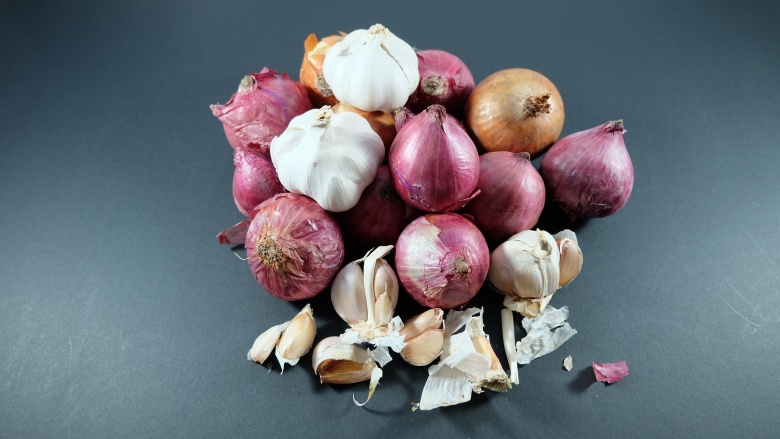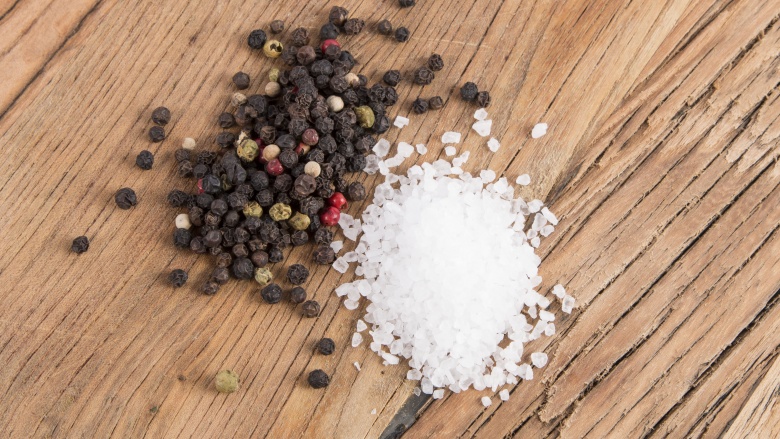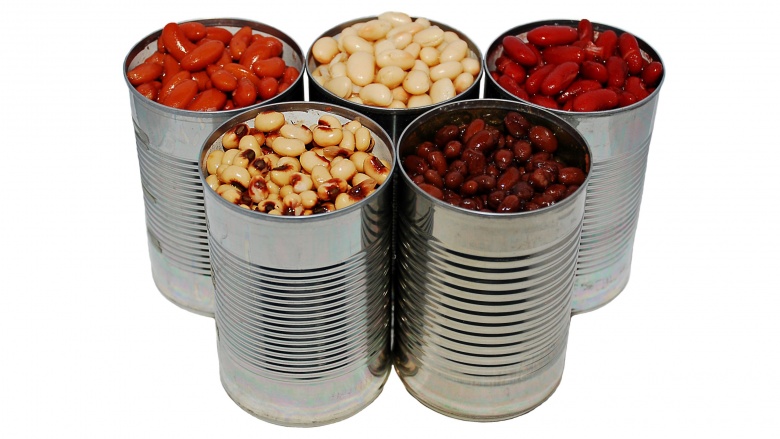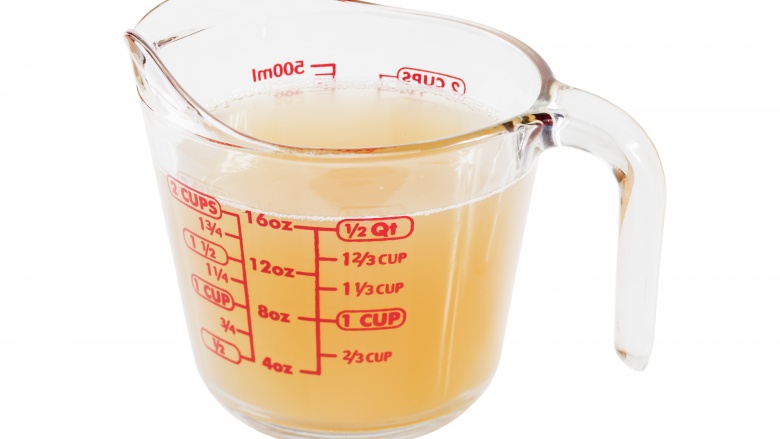Basic Ingredients You Should Always Have On Hand
Whether you're too lazy to run to the store or prepping for Armageddon, a well-stocked kitchen lets you stay home until the you-know-what hits the range hood. Home chefs know that keeping your fridge and pantry filled with the following culinary basics will have you prepared to whip up meals and snacks in a snap, without having to risk going to the market.
Lemons
The flavorful zing of lemon juice or its zest (the yellow, outer part of the skin) is the perfect addition to many sweet and savory dishes alike. With a stash of fresh lemons on hand, you can whip up a tangy vinaigrette, make a quick lemon glaze for muffins or pound cake, enjoy a refreshing fresh lemonade, and even preserve freshly cut foods that tend to oxidize (like avocados and apples.)
Onions and garlic
Members of the allium family of veggies, onions and garlic can act as the base or star attraction in so many recipes. Chopped onion, cooked slowly to bring out its sweetness, is an absolute must for the beginning of most soup, sauce, and stew recipes. Caramelized onions are a decadent treat, and a brilliant topping for bruschetta, steaks and burgers, or omelettes. Garlic, which requires far less cooking time than its big bro, can be added to simmering onions in the last minute before carrying on with a recipe for an unmistakable aroma and taste. Store both onions and garlic in a cool, dry place. Cut, partially used onions may be stored in the fridge if covered well in plastic or a glass container. As for garlic, try to use everything you prepare at once—its strong odors can permeate other foods if kept in the fridge.
Salt and pepper
There is no debate here. Salt and pepper are the most important seasonings to have for any dish you could possibly be tempted to make. Salt, crucial also to the chemical processes involved in baking, makes all foods taste more like, well, like themselves. (Yes, salt makes that tomato more tomato-ey.) Black pepper delivers a prickle of heat to your taste buds that improves the perceived texture and mouthfeel of your food. Go ahead and stock the rest of your spice cabinet when you have the time and the Benjamins, but if you're keeping it basic, salt and pepper are two seasonings you really need.
Flour
Sure, you can get fancy and stock your kitchen with flours made from almost anything—rye, sorghum, cashews, sprouted grains—you name it, but if you really want to keep it basic, set yourself up with one midsize bag of all-purpose white flour. Use it to thicken sauces and stews, make a quick roux for that killer mac and cheese, whip up quick breads and cookies, and coat meats and veggies on their way to the frying pan. Flour also has some other amazing applications in the home including shining stainless steel pots and pans and deterring ants. (It's also highly flammable, so be careful!)
Bread
How else are you supposed to make a sandwich? Or avocado toast? Or homemade breadcrumbs for Grandma's meatball recipe? A simple loaf of your favorite bread will get your through any kind of apocalypse the world throws at you. Bread also freezes brilliantly, so stock up on a couple different kinds like a boule (for stuffing with dip, of course), baguette (crostini), and basic sandwich slices, and you will be sitting pretty until the neighbors come knocking.
Olive oil
Adored for its flavor and its versatility, olive oil will get you by in most cooking pinches. If you are only going to own one bottle, avoid the high-quality extra-virgin, which cannot tolerate higher heats, and opt for a refined olive oil, which has a higher smoke point. Use it to saute, bake (it can be used in place of butter), and make homemade dressings like vinaigrette or mayonnaise.
Sugar
Essential for almost every sweet or baked recipe you can think of, sugar can also be used to quickly caramelize onions and other veggies. It can even act as a fantastic marinade for steaks, delivering a delicious, crusty finish. A bag of basic, white sugar is all you need for the most versatility in the kitchen. Besides, you never know when your cute neighbor may come knocking, looking to borrow a cup.
Eggs
Not many dishes are as simple and satisfying as a plate of scrambled eggs. But a dozen of these little guys can do so much more for you. You can batter French toast, bind together a cake or a meatloaf, or lend an appealing glossiness to the tops of baked pastries. Eggs keep remarkably well past their sell-by date, and although some purists prefer to keep them in the cupboard, they are best stored in their carton inside the fridge. Added bonus: in a crisis, rotten eggs can be tossed at your enemies.
Canned beans
Canned beans are an economical and nutritious staple that can keep you comfortably nesting from appetizers through desserts. Pop a can in the food processor or blender for a quick and delicious hummus, stir some straight out of the can into a salad for a burst of protein, or mix into soups and chilis for a hearty and filling meal. Try adding some seasoning to your favorite variety and roasting in the oven for a nutty and crunchy snack food. Pureed beans can even be stirred into the batter of brownies and other desserts for a healthy and fiber-ful surprise that you won't even taste.
Stock or broth
Whether homemade or from a carton or can, a solid home chef knows that stock or broth in the kitchen means they have the base for myriad recipes at their fingertips. Substitute broth or stock for the cooking water when preparing practically any food. Rice, noodles, grains—you name it, stock or broth will give an extra depth of slow-cooked flavor. Mash it into potatoes, use it as a base for a quick pan sauce, and create an endless array of soups or stews to feed your entire neighborhood.










